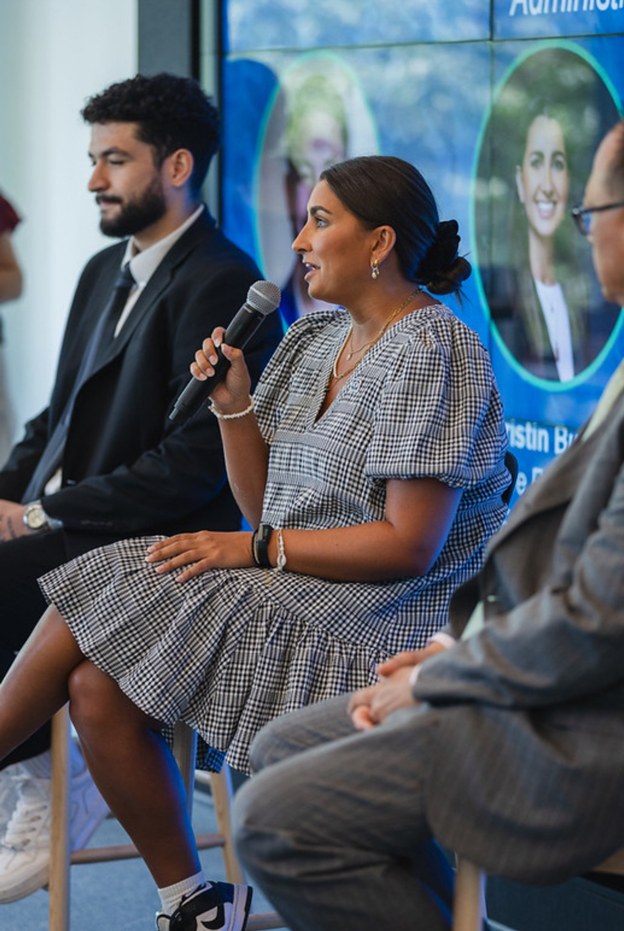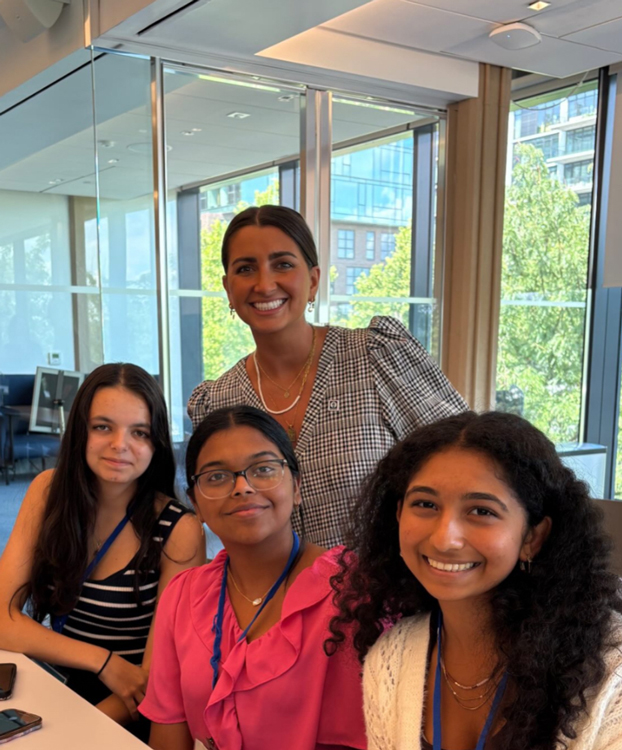Intersection between Law and the Environment
This blog post was written by Shivaani Sivaraman, a 2025 Marine Plastics Ambassador.
Before this trip, I believed people in law and people in environmental science were in completely separate worlds. They seemed to run in different circles, rarely, if ever, not intersecting. The Marine Plastic Ambassadors trip greatly broadened my perspective in ways I didn’t expect.
The trip started off strong on Tuesday with a trip to the Reservoir Center for Water Solutions for programming ahead of our Hill Day. The Marine Plastic Ambassadors attended a panel discussion on crafting our message for Congress and had the chance to network with the speakers afterward. I was pleasantly surprised to learn that one of the panelists—Kristin Butler, a legislative assistant for EarthJustice, a nonprofit dedicated to combating climate change through free legal services—actually had a strong science background, with both a bachelor’s and a master’s degree in marine science. As someone who hopes to major in environmental science, it never occurred to me that I could combine it with law. That realization opened doors in my mind I didn’t even know existed.

After the panel, a few other ambassadors and I spoke with her further. She was just as passionate about the environmental side of her work as she was about the legal side. I had also assumed that everyone in law was either an attorney or a lawyer, but through her, I learned about the role of a legislative assistant. She was warm, approachable, and answered our questions with incredible depth.

The next day, Hill Day, I realized she wasn’t an exception. Science-based professionals in law were far more common than I had imagined. I used to place Congress on a pedestal, thinking of it as distant and intimidating. Now I see that our elected officials are here to protect us and represent the interests of their constituents. They want to hear from us, and they seek out scientists for guidance in shaping policy. All of the elected officials I spoke to, ranging from legislative staffers to senators, listened to our points with an open mind and a genuine curiosity.
I’ve come to understand that working in the legal and policy space doesn’t require a political science degree or a fancy suit. What it really requires is a genuine passion to help people and the planet. Anyone with dedication and expertise, scientific or otherwise, can make an impact.
